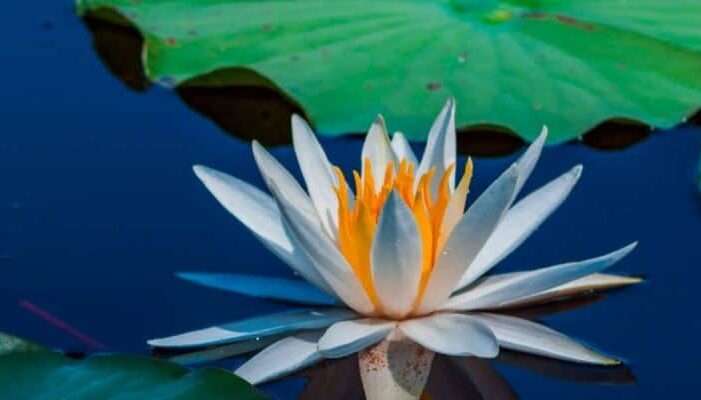POSTS:
All Posts

Lenorë Lambert’s The Buddha for Modern Minds: A non-religious guide to the Buddha and his teachings
Lenorë Lambert's new book, The Buddha for Modern Minds: A non-religious guide to the Buddha and his teachings, provides newcomers and experienced practitioners with answers to key questions such as: Does the dharma teach passivity? Is the dharma anti-passion? Do I need to find a teacher to learn the dharma? The book also offers a deep dive into the Four Great Tasks (orthodox Four Noble Truths).

Healing together
We must rediscover a view of the other that is not dominated by fear, but courageously puts friendship back at the centre, as a sincere opportunity to get to know each other, to compare notes, to build an identity that is the beginning of a process of imagining a new collective identity.

An interview with David Edwards on corporate media bias, political activism, and meditation
SBN interviewed David Edwards, the co-editor of the UK-based media watch site Media Lens and author of several books. David discussed his critique of corporate media bias and how political activists can make a real difference by focusing on being, not just on doing; on learning to truly live and feel, rather than solely on external change.

Science, meditation, emotion, creativity
Commenting on the English novelist Phillip Pullman's interview with the New Scientist journal, Ramsey Margolis urges us to to develop a creative, imaginative approach to the dharma so that we can respond to the issues we’re facing today as living beings on this planet: climate emergency, social inequality and exclusion, species extinction (including our own), and much more.

Coming to terms with being human: a fourth mark of existence
Buddhists teachings point us towards three characteristics that are common across everything in sentient life: dukkha, anatta, and anicca. Linda Modaro posits a fourth mark of existence based on our need to survive and thrive.

Seth Zuihō Segall and Winton Higgins debate the meaning and value of secular Buddhism
Beginning with Seth Zuihō Segall's article, 'Why I am not a secular Buddhist,' Seth and Winton Higgins have engaged in a dialogue on SBN about the meaning and value of secular Buddhism. They have discussed the notion of secularity, religion and religious experience, the role of community, and other key issues.

The dialogue on secular Buddhism continues: Winton Higgins’s surrejoinder to Seth Zuihō Segall’s rejoinder
In his reply to Seth Zuihō Segall's rejoinder in the debate over secular Buddhism Winton Higgins explores the meaning of secularity, religion, and the everyday sublime. He argues that a secular faith is not opposed to religion but is characterized by a deep engagement, a wholehearted commitment, to living this, our one and only life, meaningfully.

Stephen Batchelor on a ‘Secular Perspective on the Eightfold Path’
In a dharma talk given to the Community Meditation Center (New York City, USA), Stephen Batchelor discussed a secular perspective on the Noble Eightfold Path.

An interview with Robert Wright on evolutionary psychology and a naturalistic approach to Buddhism
SBN interviewed Robert Wright, the author of why 'Buddhism is True,' on evolutionary psychology, his naturalistic approach to Buddhism, and his view of secular Buddhism.

The dialogue on secular Buddhism continues: Seth Zuihō Segall’s rejoinder to Winton Higgins
Seth Zuihō Segall continues the dialogue on secular Buddhism by offering a rejoinder to Winton Higgins' response to his article, 'Why I Am Not a Secular Buddhist.' Seth discusses the nature of the religious attitude, the role of community and traditions, and his non-dual perspective.

Lorna Edwards on Frederick Buechner’s poem, ‘Found’
Lorna Edwards introduces a Frederick Buechner poem, 'Found,' which invites us to pay attention to what it means to be truly human, acknowledging our relationship to the world - both as loving it and being terrified by it.

Winton Higgins responds to Seth Zuihō Segall’s ‘Why I am not a secular Buddhist’
Winton Higgins asserts that Seth Zuihō Segall mistakenly assumes that all secular Buddhists support a 'scientistic' form of secular Buddhism which is hostile to religion. In fact, many secular Buddhists advocate an 'interpretive' approach which integrates dharmic insights with modern perspectives to promote human flourishing in this life.

Why I am not a secular Buddhist
Seth Zuihō Segall considers his 'naturalized' and 'eudaimonic' approach to Buddhism 'close cousins' to secular Buddhism. Yet, he believes that the word 'secular' implies a set of connotations he does not wish to affirm.

Lorna Edwards on Mary Oliver’s poem, ‘The Moth, the Mountains, the Rivers’
Lorna Edwards introduces a Mary Oliver poem, 'The Moth, The Mountains, The Rivers,' which speaks to the fragility/ever changing nature of life in all its forms and invites us to reflect on our role as humans on this planet.

Owen Flanagan on the core elements of a naturalistic Buddhism
Owen Flanagan presents the core elements of a naturalistic Buddhism in a recent essay. Following the traditional division of the Noble Eightfold Path into three sections – wisdom, ethics, and meditation - he lays out the ‘three strands’ of a Buddhism stripped of the metaphysical and supernatural elements of traditional Buddhism.
EXPLORE BY SECTION
SEARCH THE SITE
RECENT POSTS







